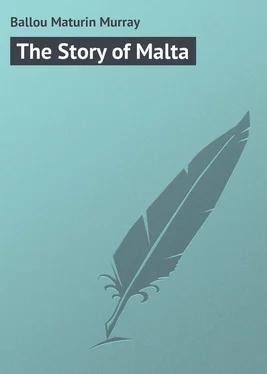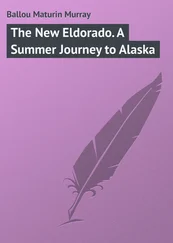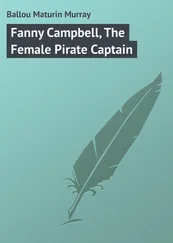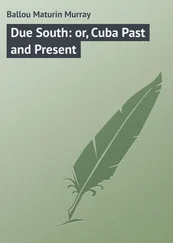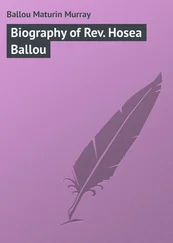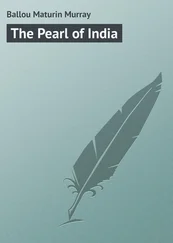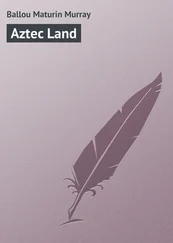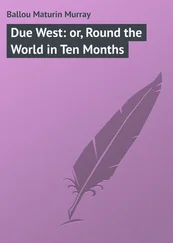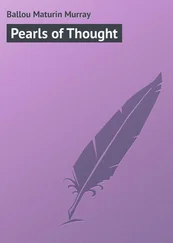Maturin Ballou - The Story of Malta
Здесь есть возможность читать онлайн «Maturin Ballou - The Story of Malta» — ознакомительный отрывок электронной книги совершенно бесплатно, а после прочтения отрывка купить полную версию. В некоторых случаях можно слушать аудио, скачать через торрент в формате fb2 и присутствует краткое содержание. Жанр: foreign_prose, на английском языке. Описание произведения, (предисловие) а так же отзывы посетителей доступны на портале библиотеки ЛибКат.
- Название:The Story of Malta
- Автор:
- Жанр:
- Год:неизвестен
- ISBN:нет данных
- Рейтинг книги:5 / 5. Голосов: 1
-
Избранное:Добавить в избранное
- Отзывы:
-
Ваша оценка:
- 100
- 1
- 2
- 3
- 4
- 5
The Story of Malta: краткое содержание, описание и аннотация
Предлагаем к чтению аннотацию, описание, краткое содержание или предисловие (зависит от того, что написал сам автор книги «The Story of Malta»). Если вы не нашли необходимую информацию о книге — напишите в комментариях, мы постараемся отыскать её.
The Story of Malta — читать онлайн ознакомительный отрывок
Ниже представлен текст книги, разбитый по страницам. Система сохранения места последней прочитанной страницы, позволяет с удобством читать онлайн бесплатно книгу «The Story of Malta», без необходимости каждый раз заново искать на чём Вы остановились. Поставьте закладку, и сможете в любой момент перейти на страницу, на которой закончили чтение.
Интервал:
Закладка:
Three thousand years – this is not looking backward very far, comparatively speaking. The author has seen objects of Egyptian production, in the Boolak Museum, on the banks of the Nile, which were six thousand years old. The Sphinx, standing in its grim loneliness ten miles from Cairo, is still older, while in the South Sea Islands there are prehistoric ruins which are believed to antedate the Sphinx. The probability is that a degree of antiquity applies to this globe so inconceivably remote that, like stellar distances, the mind can hardly realize the truth. Professor Agassiz talked confidently in his day of a million years having been required to bring about the present conditions of the earth. Since Agassiz's time geologists and scientists generally do not hesitate to add the plural to million, guided by the light of modern progress and discovery.
Such ancient mention of Malta as does exist is crowded with fable, like the early history of Greece and Rome. An example of this is found in the popular legend of its having once been inhabited by a cyclopean tribe, a race of giants, "half human, half divine." These extravagant legends of poetic history impress us as having, perhaps, some foundation in truth. It is not falsehood which tradition seeks to perpetuate. Possibility, if not probability, is required of the wildest romancers. Truth and fable run in nearly parallel lines. Jules Verne, when he wrote some of his seemingly extravagant stories, scarcely thought that he was simply anticipating possible circumstances which would so soon become realities. The reading world hardly believed that his "Round the World in Eighty Days" was strictly within the lines of truth; yet that record has been reduced.
Malta is known to have been the vassal of ten different nationalities. What the character of these various dynasties may have been can only be conjectured. There are no records extant by which we can learn aught in detail concerning them. A few half-ruined monuments, a series of rock tombs, the débris of mouldering temples, or a nearly obliterated underground city, "rich with the spoils of time," – these are significant suggestions which the student of the past in vain essays to translate into coherency. The most casual visitor is moved to thoughtfulness as he contemplates these half-effaced tokens of a long dead and buried race, who had no Froissart to hand down their story through the lengthening vista of ages. First came the Phœnicians, who were here many centuries before the birth of Christ, and who were the earliest known colonists of Malta. Their sovereignty is believed to have extended through a period of seven hundred years. Greeks, Carthaginians, Romans, Goths, and Arabs succeeded each other in the order in which they are named, followed by German, Spanish, French, and English possessors, the latter having maintained an uninterrupted mastership since the beginning of the present century. To a nation whose naval supremacy is its greatest pride, and which already holds Gibraltar, the key to the Mediterranean, the holding of Malta is of inestimable importance. With these facts in view, it is not surprising that its security is so jealously guarded by England. Perhaps the boastful threat of the first Napoleon, that he would make of the Mediterranean a French lake, has not yet been forgotten. At present it is strictly an English dependency, though surrounded by a score of other nationalities. With the entrance and exit in her hands, besides holding this unequaled central dépôt of arms, no nation could hope successfully to dispute the control of the Mediterranean with Great Britain. That nationality not only dominates the great marine highway of the south of Europe, but also the coast of Asia.
Malta is situated in the middle of the great highway of commerce between the East and the West, and is the most southerly land in Europe, on about the 36th parallel of north latitude, its longitude being 15° east. The neighboring nations have often and fiercely contested for the sovereignty of Malta, until its soil has been irrigated by the life-tide of human beings. How strange the history it presents to us, what ages of melodramatic vicissitudes, emphasized by the discord of warring cannon and of dying men! How many and how varied the changes it has known in a period of thrice ten hundred years! Mutability is written on all things human, while Time, the remorseless iconoclast, performs the bidding of Destiny.
It would naturally be expected that the language of a people who have had such a peculiar experience as the Maltese should be a conglomerate, formed from various Asiatic and European tongues. It seems to be a mixture of Italian and Arabic, mingled with the patois which is common in the Grecian Archipelago; but English being the current official language, it prevails among the educated classes, and is also in general use for business purposes, especially in the retail shops of Valletta, the capital. The language of Dante, Petrarch, and Ariosto is still unknown to the common people, though generally understood and spoken in society. The masses adhere tenaciously to their native dialect, even after they have emigrated to other countries. In Gibraltar they pick up just enough of Spanish to make their wants known, as they do in other Mediterranean ports to which chance has brought them.
As is often the case in Eastern countries and oceanic islands, Malta is used both for the name of the island and that of the capital. The one collective term answers for the entire group; so with the beautiful island of Ceylon; people do not usually speak of Colombo, its capital, but of Ceylon, as designating the whole island. Martinique is sufficiently distinctive as regards that picturesque West Indian island; St. Pierre and Fort de France, the commercial and political capitals, are rarely mentioned. Thus Valletta has little significance to the world at large, while Malta is familiar enough.
The Phœnicians, the Greeks, and the Romans, each left tangible evidences of their sovereignty here. The ubiquitous Phœnicians, who are considered to have been the earliest of the commercial tribes, were by no means entirely free from the charge of piracy, which seems to have been almost universal upon this central sea in the earlier and middle ages. Strange, that sea-robbery should have been one of the active agencies in the world's advancement! It is said that all progress since the beginning has been from scaffold to scaffold. In our day no lapse from honorable commercial methods is so abhorrent to civilized nations, and no crimes are more severely punished. Next to the Turks and Algerines, the Greeks were the most reprehensible in this respect, – a people whose love of "freedom" has become a proverb; a country which has enjoyed more of American sympathy and material aid than any other, but whose sons in former times never failed to adopt a corsair life when opportunity offered.
There are very few monuments relating to the occupancy of these islands by the Arabs, who were settled here for more than two centuries. The most durable memorial of that people is their language, a tongue unsurpassed in poetic beauty of expression. After the lapse of ten centuries it is still spoken among the natives, and is held to be remarkably pure, especially in Gozo, the sister isle of Malta. Though it is customary to say that the natives speak Arabic, still it can hardly be a pure tongue; and yet the newly arrived Arabs can understand the Maltese, proving that the basis of the two languages must be identical. An educated resident took occasion to prove to the author that here and there one could select words from the current speech of the common people, the derivation of which was clearly Phœnician. Residents of the capital who are engaged in commerce, and many others of intelligence, speak English, French, and Italian fluently, and most of them speak the native tongue as well. The facility for acquiring foreign languages is a national trait. Cultured Maltese are surpassed only in this respect by educated Russians.
Читать дальшеИнтервал:
Закладка:
Похожие книги на «The Story of Malta»
Представляем Вашему вниманию похожие книги на «The Story of Malta» списком для выбора. Мы отобрали схожую по названию и смыслу литературу в надежде предоставить читателям больше вариантов отыскать новые, интересные, ещё непрочитанные произведения.
Обсуждение, отзывы о книге «The Story of Malta» и просто собственные мнения читателей. Оставьте ваши комментарии, напишите, что Вы думаете о произведении, его смысле или главных героях. Укажите что конкретно понравилось, а что нет, и почему Вы так считаете.
